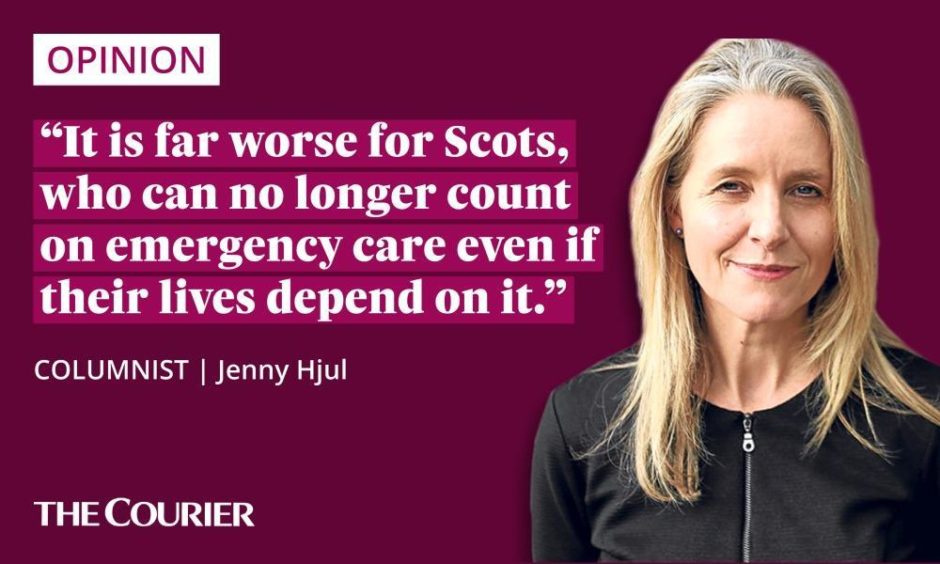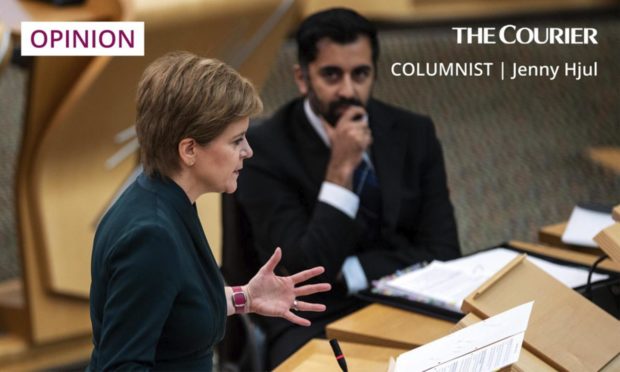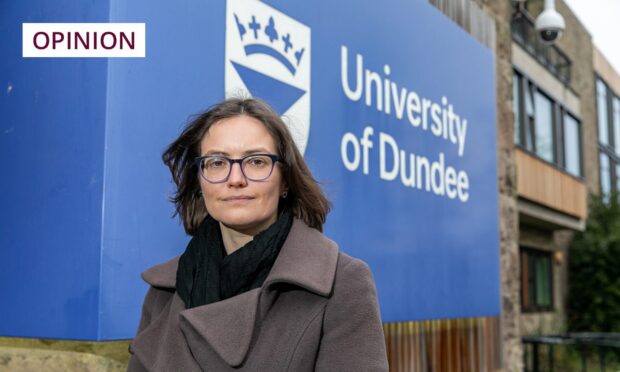In the run-up to the COP26 climate change conference in Glasgow there have been fears in Westminster that Nicola Sturgeon will try to hijack the event to push for independence.
But with the summit just six weeks away, there are now doubts it will even go ahead.
Far from taking centre stage, Sturgeon may want to hide from view as her country descends into increasing chaos.
The president of COP26, Alok Sharma, told Andrew Marr on Sunday he was confident the convention would take place in person, amid Covid pressures on hospitals and a crisis in Scotland’s ambulance service.
His reassurance was anything but and suggests that the alternative – making the much-hyped eco extravaganza an online forum – has been seriously considered in London.

In the past week, the extent of Scotland’s waiting times fiasco has been exposed, with heart-breaking tales of people dying before reaching hospital.
They included 65-year-old father Gerard Brown, who waited more than 40 hours for an ambulance in Glasgow, and the mother of Scottish journalist Patricia Kane, who died in an ambulance on the side of a motorway after 13 hours of delays.
So desperate is the situation that the SNP government has had to call in the British Army to ferry patients to hospital, and may have to rely on troops until next spring as the NHS struggles to cope.
UK’s offer to vaccinate accredited #COP26 delegates being rolled out
Great to see another delegate getting their vaccine in Benin to come to Glasgow
Thank you to all involved in this effort, both here in the UK, and across the world pic.twitter.com/IoYg0Cr33t
— Alok Sharma (@AlokSharma_RDG) September 19, 2021
For a regime campaigning to break up the UK, this is not a good look.
It may explain the lengthy and uncharacteristic radio and television silence on the subject from Sturgeon’s health secretary, Humza Yousaf, and her clinical director, Jason Leitch.
But it is far worse for Scots, who can no longer count on emergency care even if their lives depend on it.
Crisis was brewing before Covid
While Sturgeon blamed Covid for the Scottish Ambulance Service’s challenges, issues with staffing and lack of resources predate the pandemic, according to a top doctor.
Professor Michael Griffin, president of the Royal College of Surgeons of Edinburgh, told the BBC’s Good Morning Scotland programme last week that Scotland had “a real workforce problem in the NHS and in social care” that are “not just due to Covid”.
As staff absences increase and A&E queues grow longer, there have been calls for field hospitals to be established to manage demand.
Scottish Conservative health spokesman Dr Sandesh Gulhane criticised the government for shutting down the NHS Louisa Jordan, built to handle Covid patients but now, with all its beds removed, used for pop concerts.
For Sturgeon, who was a long serving Scottish health minister under Alex Salmond, the latest debacle in her former department heaps humiliation upon embarrassment.
This week has also seen the opening of an inquiry into two of Scotland’s flagship hospitals, where problems contributed towards children’s deaths.
The investigation was prompted after patients died at Glasgow’s Queen Elizabeth University Hospital from infections linked to pigeon droppings in the water supply, and the opening of the Royal Hospital for Children in Edinburgh was delayed over concerns about the safety of the ventilation system.
One father of a sick boy told the inquiry that the Queen Elizabeth building almost killed his son and that his cancer was safer than the hospital infection.
The SNP promised to “remobilise” the NHS in its election manifesto but the evidence since then points to third world experiences for many patients.
In fact, health spending in England, mostly under the Tories, has increased more than three times faster than in Scotland over the past decade, the Institute of Fiscal Studies found earlier this year.
Distracted by independence dreams
So what has Sturgeon been doing while her country’s most vital public service unravels? She has, as usual, been gazing into the middle distance and imagining another planet where she is the leader of an independent Scotland.
For those of us backing #Yes, this day 7 years ago was hopeful, emotional, exhausting and, ultimately, heartbreaking. Scotland today is on a journey. If we persuade and inspire, I have no doubt it’s a journey that will reach the independence destination soon #StillYes #indyref2 https://t.co/1qhuOqpRRn
— Nicola Sturgeon (@NicolaSturgeon) September 18, 2021
Instead of getting to grips with her current responsibilities, she dreams of what might be.
No wonder voters are no more convinced by arguments for separation than they were during the referendum seven years ago.
The focus of government should have been on fixing the failing NHS but Sturgeon was fixated on stitching up a political deal with the pro-independence Scottish Greens, who are even more out of touch than the First Minister is with the needs of ordinary Scots.
Just one example: Green co-leader Patrick Harvie was exhorting people to ‘Take. The. Train’ on his Twitter account this weekend.
Take. The. Train.
(and tax aviation fuel to pay for cheaper train fares) https://t.co/Xj8pPqHAO0
— Patrick Harvie 🇪🇺🌈 (@patrickharvie) September 19, 2021
Has he ever ventured beyond his Central Belt sanctuary to more rural areas where public transport is not a given, even in the towns?
How ironic if the greatest environmental gathering on earth in November is jeopardised by a government that has put such a high premium on Green politics at the expense of good governance.
When the world’s eyes are on Scotland in November, Sturgeon may well steal the show, but for all the wrong reasons.










